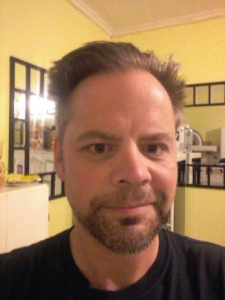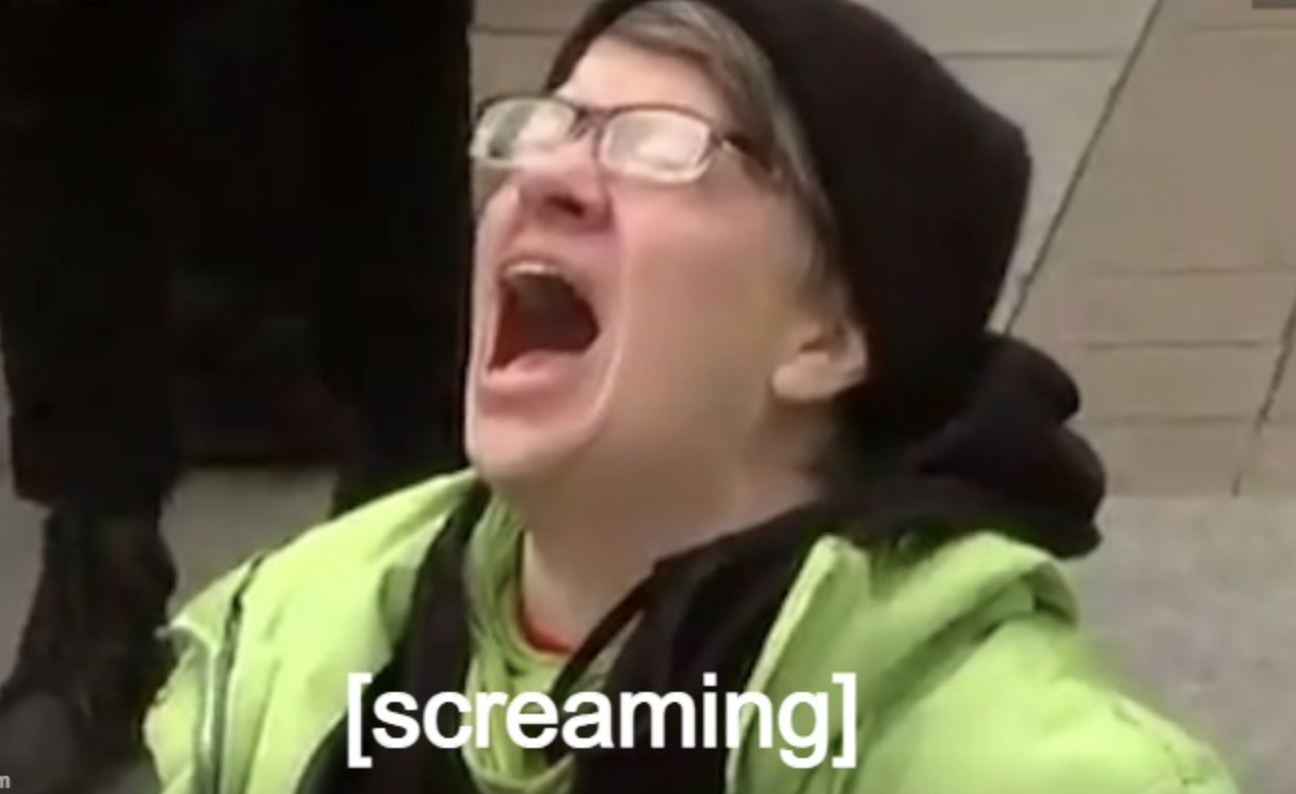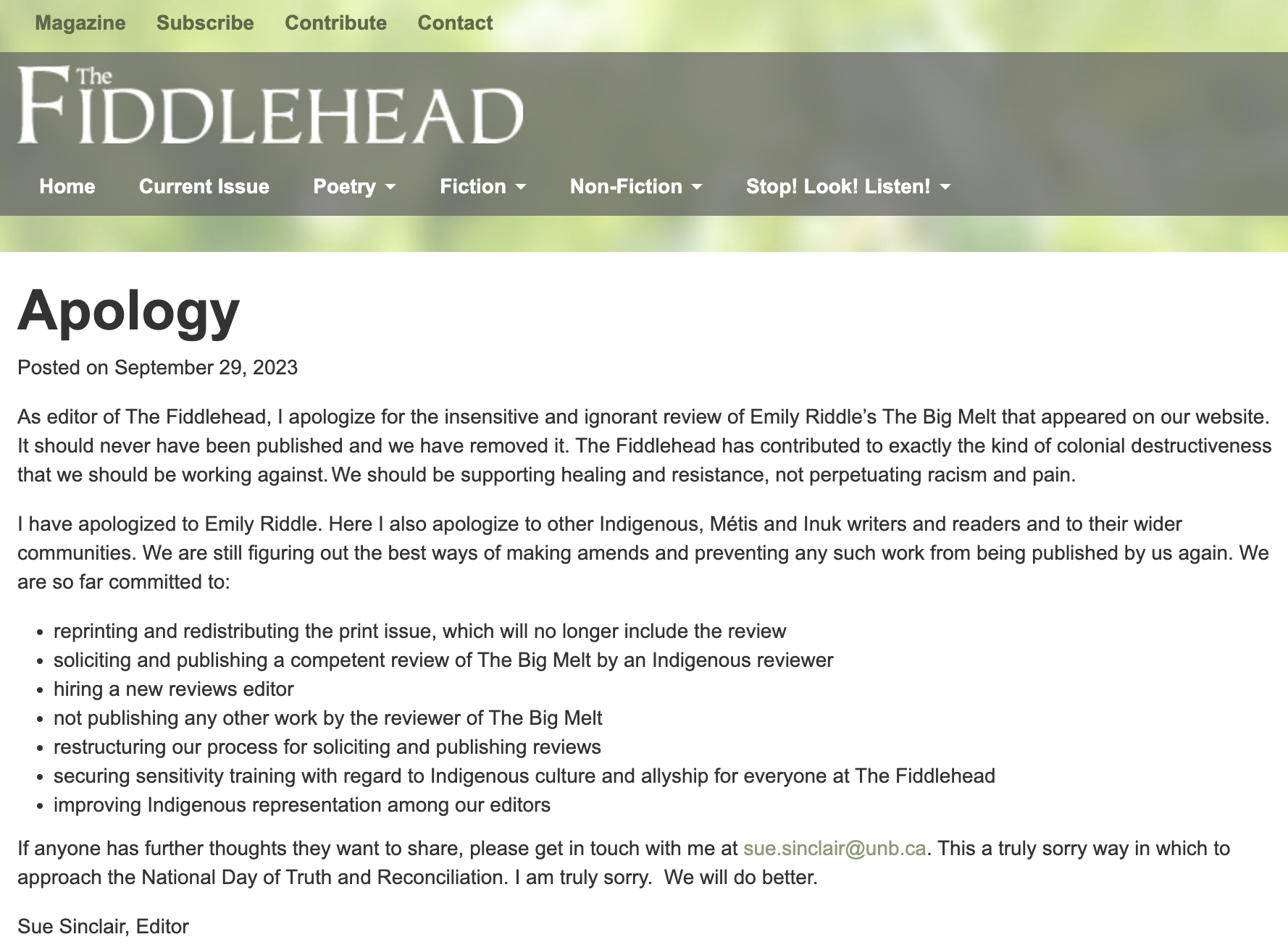 Darrell Epp’s poetry has appeared in over 130 magazines on 6 continents. He is the author of 3 poetry collections: Imaginary Maps, After Hours, and Sinners Dance. Mechanical Monkeys will be published by Mosaic Press in 2020. He lives in Hamilton, Ontario.
Darrell Epp’s poetry has appeared in over 130 magazines on 6 continents. He is the author of 3 poetry collections: Imaginary Maps, After Hours, and Sinners Dance. Mechanical Monkeys will be published by Mosaic Press in 2020. He lives in Hamilton, Ontario.
If we are what we repeatedly do, as Will Durant paraphrased when considering Aristotle’s work, then I am a tugboat deckhand. I also call myself a writer, although the claim to this identity seems dubious at times. The term “hobbyist” is a devastating slur for anyone attempting to be a “serious” writer, but how do we define these terms?
If a “professional writer” is someone who lives solely on income from the sale of writing, that’s a very rare animal. I don’t think we can use money as an indicator of the seriousness of a writer, even if it might provide some clues. It is obviously possible to write poorly yet make millions from your work, so you can be “professional” yet not “serious.” I don’t think you can use production either, because anyone has the capacity to produce reams of unreadable work. Time devoted might not be a good measure for the same reason.
Perhaps the only fair measure of a “serious” writer is any randomly selected text. I don’t care if it took you twenty years to write a single poem. I don’t care if you wrote one short story and nothing else. If we’re to determine if anyone is a “real” writer, the proof is on the page. The care, attention, and skill applied there is all that matters.
How we define ourselves as writers might change as we pass various milestones such as first publication, first payment for publication, first book, first novel, and first award. From your earliest attempts at poetry, how did you define yourself, and which events changed that self-definition along the way? How do you see yourself now?
My short answer is: why worry about that stuff? Now here’s the long answer. You say you work on a boat, and you write. Well, work is a virtue, work is meaningful–all work. Period. And wondering how to judge if you’re a ‘pro’ or not is somewhat of a mug’s game, since T S Eliot made more money working as a bank teller than he made from writing The Wasteland, and Kafka was NEVER a professional writer–he worked at a boring desk job and wrote at night…and of course, at the top of the mountain you have Anton Chekhov, who wrote 300 stories and 5 plays while working during the day as a physician, and dying at the age of 44. Whenever I start pondering how my writing ‘career’ is going, I just imagine Chekhov is there, smiling, gently chiding me, saying, “That’s not for you to worry about; just get back to work.” And that’s what I recommend to others.
If by ‘professional writer’ one means, a person who generates a comfortable middle class income from writing, of course those are rare, and getting rarer by the day–why would someone pay money for my book when they can get endless amounts of interesting writing for free online? Byron, Shelly, they were like the rock stars of their day, partly because their audience had so fewer entertainment options. Looks like my business strategy is 200 years out of date! Oops! Too late now…
My earliest serious attempts at poetry, I remember that period like the beginning of a love affair. You know, when you learn more and more things about your lover, that make your love grow…I’d worked in theatre, prose, journalism, and was just so impressed by what poetry can achieve, all these important things that can’t be done in any other form. And, I think, poetry’s importance grows every day, as technology’s attack upon the sacred intensifies. And I think the increased attendance at poetry readings around the world is an act of resistance against the way our machines are warping our relationships, our communities, out of shape. Imagine: people looking away from the glowing screen, going out of doors to hear poems written by their neighbours about their neighbourhood…not so much in Southern Ontario, but Wales, for example, those folks take poetry a lot more seriously. Now that was a good time…
Which events changed my self-definition along the way? Well, one event I remember clearly is when ‘For Henry Ford’ was published in Maisonneuve, and they paid me. That was a bit of a signal that I might be onto something…then Poetry Ireland published ‘The River,’ and they had just published Charles Simic, so again that suggested that something interesting was going on…certainly things clicked more than when I was toiling in other forms. Basically, enough people told me I was a poet, I thought it’d be rude to disagree. And here we are.
Finding a real home with Mosaic Press had been a huge boon to my writing and my life in general, that’s for sure. After Hours being nominated for an award was nice because they had free food at the awards ceremony.
What do you say to young writers who are considering quitting?
Go ahead and quit if you want to. If it’s not meant to be, I can’t make it happen, and if it’s meant to be, I can’t stop it. There’s other things to do with your life that a person may find meaningful, with far less risks of insanity/poverty.
Based on your past experience, what do you plan to do differently with the preparation, publication, and promotion of your third book of poetry?
Preparation/publication-wise, I plan to include more jokes. Promotion-wise, I plan to do as many readings as humanly possible, to meet as many readers as I can. I feel like I have some sort of duty to help my work find its audience, somewhere out there…
Many of the writers I interview find self-promotion uninteresting and distasteful. Are you in that group? Publishers will do their best, but their writers are expected to be active and willing participants in the marketing and promotion process. If writers want to be read, I don’t see any way around this. What has been most effective in the promotion of your work?
My self-promotion consists of pretty much nothing but poetry readings, and not only are they not uninteresting and distasteful, they’ve been thrilling and unbelievably fun–so many interesting humans I wouldn’t have met any other way, I’m grateful…
What has been most effective in the promotion of your work?
One thing I can say is, advertising does not work. Unless you’re already as famous as Iron Man. Otherwise, an ad just doesn’t have enough persuasion power. Instead of buying an ad, try standing on the corner and reading your stuff to pedestrians, way more cost-effective.
Who has been most helpful in your development as a writer? How were they helpful?
David Gilmour, author of The Film Club and Sparrow Nights. Back when I was just starting, he said the two magic words, the best writing advice I ever received. He read my mss. and said, “Don’t stop.” It was helpful because that’s all you have to do–don’t let the world crush you, make you surrender. If you just never stop, no matter what, the bad guys really can’t take anything away from you.
What is the writing community like in your area? Are you heavily involved? Do you flit around the edges, or do you avoid it altogether?
There’s a lot of great writers in Hamilton, like Gary Barwin. He’s also a great guy, a gentleman. I recommend buying his book No TV for Woodpeckers to anybody.
I’m getting a bit more involved lately…so far, so good…
Based on your experience with readings, what advice do you have for novice readers? Describe the good, bad, and ugly aspects of your average reading.
My advice is, do as many readings as you can. The more readings you do, the better you’ll get at it. Plus, you’ll also give yourself a forceful reminder that poetry is meant to be processed via the EAR, so you’ll become a better writer, more aware of rhythm and meter, and pleasing sounds…
After doing readings in four countries, there have been zero ugly aspects, zero bad aspects. Again, I’m just so grateful for all the interesting humans I’ve met at readings who I’d never have met any other way…
What does an established writer owe new and emerging writers?
Well, I suppose the same thing any human owes any other human: be generous, compassionate, kind, and give a hand whenever the opportunity presents itself. I’m still surprised at how kind some established writers were to me when I was starting out, and now I sometimes get an opportunity to help an aspiring writer improve, and it’s great. It seems like the moments when you give or receive a kindness are the moments when you come closer to sensing the divine, or whatever you want to call it.
What is the greatest threat to your productivity?
I continue to be alarmed at how persistent the demon of procrastination can be. Sometimes, procrastination is about fear, fear of failure, failure of not being able to pull off the story in your head. But you have to push through and do it. Anything is better than zero. When it gets really rough, read this interview with Colleen Doran. She calls procrastination ‘death by a thousand nothings.’
|
archive.org
Darrell Epp is interested in “the poem as a document of its own creation, a celebration of the creative process itself”. With each collection of poems he publishes, he comes closer to realizing this.
|
||
https://www.youtube.com/watch?v=n99f8HUx0fI
|
www.youtube.com
a poem dedicated to Vincent Price, from the forthcoming poetry collection Mechanical Monkeys, published by Mosaic Press.
|
||




Leave A Comment